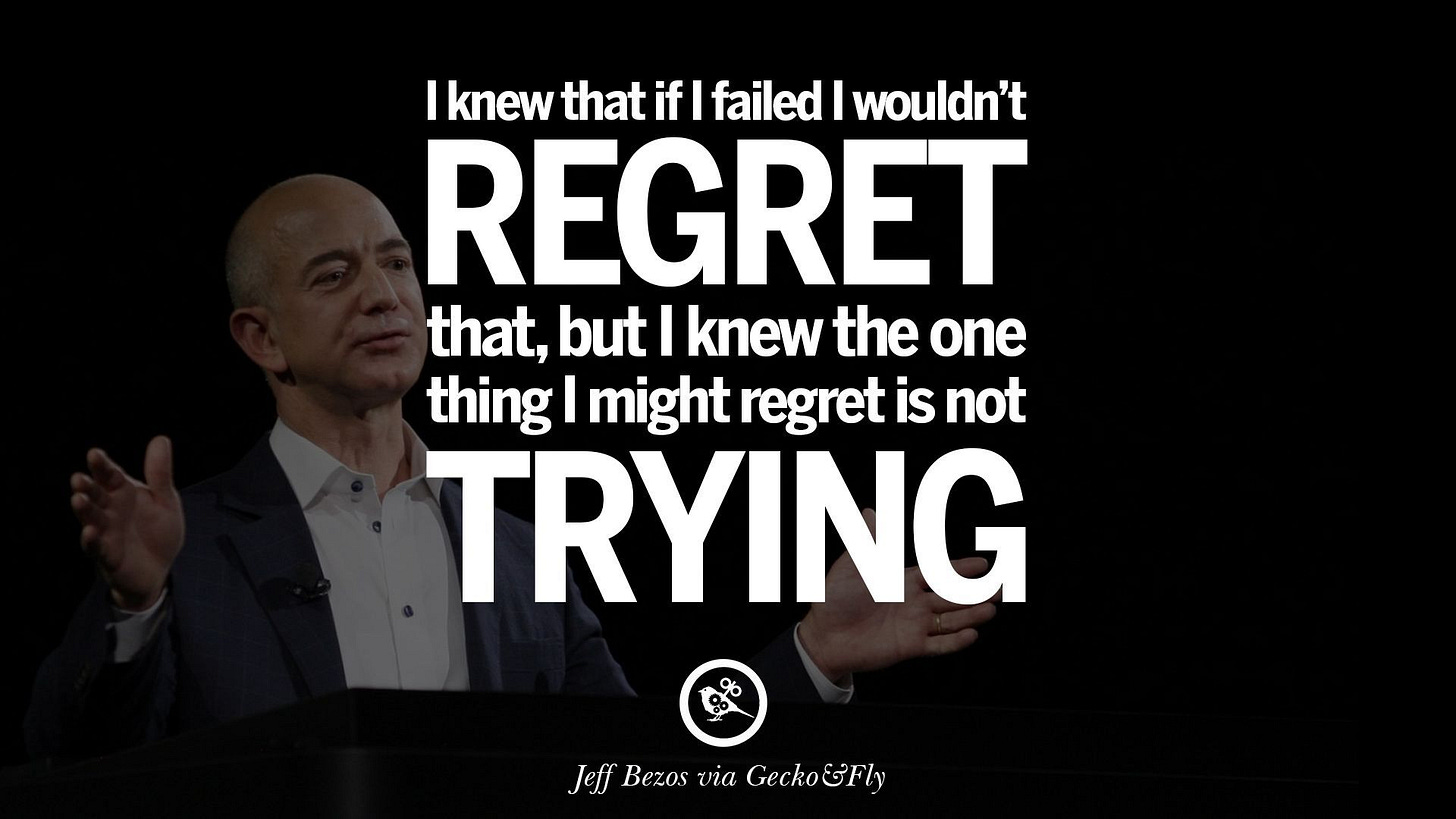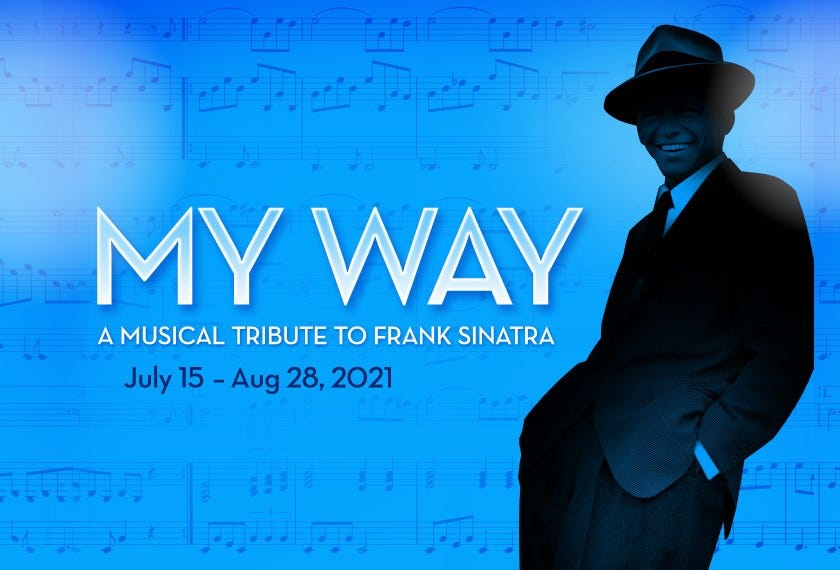Jeff Bezos’ Regret Minimization Framework
A simple decision-making strategy of Bezos
Jeff Bezos’ Regret Minimization Framework is a decision-making strategy that focuses on minimizing future regrets. The Regret Minimization Framework has been a cornerstone of Bezos’ philosophy, guiding him to take bold steps and make decisions that prioritize long-term satisfaction over immediate comfort. It’s a testament to his forward-thinking approach and his commitment to building a life with as few regrets as possible. In fact, he used this framework when deciding to start Amazon, leaving behind a comfortable job to pursue something he believed in.
He once said, “The framework I found, which made the decision incredibly easy, was what I called — which only a nerd would call — a ‘regret minimization framework.’ So I wanted to project myself forward to age 80 and say, ‘Okay, now I’m looking back on my life. I want to have minimized the number of regrets I have.’”
According to Bezos, people often struggle with decisions that require relinquishing short-term benefits. An advantage of this framework is that it not only helps you identify what matters most in the long-term, but it also enables you to see the relative unimportance of other things.
Regret Minimization Framework
Here’s how it works:
Future Projection: When faced with a significant decision, you project yourself into the future, typically at the age of 80.
Reflect Back: From that vantage point, you look back on your life and consider the decision at hand.
Minimize Regrets: You ask yourself, “When I am 80 years old, will I regret NOT doing this?” The goal is to choose paths that align with long-term fulfillment over short-term comfort.
Decision Making: If the answer is that you would regret not doing something, then that’s an indication that you should go for it.
So, it’s a tool to help make choices that you are less likely to regret later in life, ensuring that you take chances and avoid wondering “what if.”
What appeals to me is that it is very simple and can be applied to a wide range of decisions such as:
Career: Choosing between a safe job and starting a new business.
Education: Deciding whether to invest time and money in further education.
Relationships: Considering commitments like marriage or long-term partnerships.
Opportunities: Evaluating whether to take advantage of a unique opportunity that may not come again.
So you can ask questions such as:
Will I regret not taking this job when I am 80?
Will I regret not marrying this person when I am 80?
Will I regret not closing this business when I am 80?
Will I regret not going on the 10-day Euro trip when I am 80?
Will I regret not standing up for myself when I am 80?
So, I see it as a great way to build confidence and take bold decisions now, rather than regret later.
My Personal Anthem
Personally, I found the song “My Way” by Paul Anka and popularized by Frank Sinatra a means to embrace the Regret Minimization Framework. The essence of the song “My Way” is about living life on one’s own terms capturing the spirit of individuality and personal triumph, reflecting on life experiences with a sense of empowerment and courage. You can listen to this song below:
A few words of caution
Tunnel vision: While being powerful, this method can easily bias your decisions because you take a tunnel view and zoom yourself into the future. If you have immediate financial needs or responsibilities, prioritizing long-term regret minimization might not be feasible. And from there, everything around you now might seem irrelevant. For example, will I regret NOT taking this job when I am 80?... hmmm, might not regret. So many other opportunities might come my way in future.
Risk Assessment: The framework doesn’t account for the level of risk associated with a decision. High-risk ventures might offer high rewards but could also lead to significant losses. For instance, quitting a job without having another one lined up could lead to financial hardship.
Overemphasis on Action: The framework might lead to an overemphasis on taking action, even when inaction or patience could be the better choice. For example, buying a stock when it is at its peak assuming the market will grow in future.
Emotional Considerations: Decisions that involve personal relationships or emotional well-being might not be best served by a framework that focuses solely on future regret. In fact, you are most likely to make a wrong decision. For example, investing in a start-up your brother is starting.
Complex Decisions: Some decisions involve multiple variables and potential outcomes that the Regret Minimization Framework doesn’t fully address. In such cases, a more nuanced approach might be required. For instance, choosing a career path versus another.
Unpredictable Outcomes: Life is unpredictable, and the framework assumes that you can anticipate how you’ll feel about a decision in the future, which isn’t always possible. For example, spending your life savings on building a safe-house to protect during wartime.
Personal Values: It doesn’t take into account personal values or ethics, which can be crucial in decision-making. For instance, silly things that violate your value system.
Hope you liked this simple, yet powerful approach used by Jeff Bezos.
If you are interested to know more, you can also contact us at Business.Support@collaborat.com.
Read More
Read past issues of this fortnightly editorial here.
As always, happy to hear your views in the comments.



